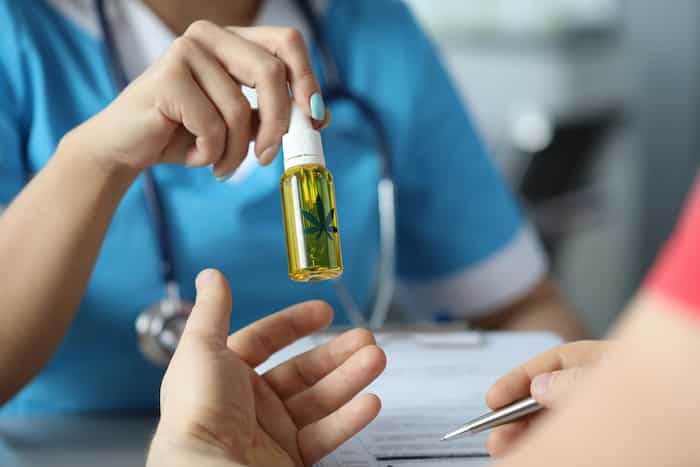There has been increasing interest in NZ when understanding the value of CBD as a treatment option, especially for conditions related to stress and anxiety.
PTSD was first classified as an anxiety disorder (DSM -IV) but was later categorised as a trauma and stress-related condition (DSM-V). This chronic neuro-psychiatric condition develops as a response to a traumatic event. It manifests in each individual to a different degree, and symptoms can range from disturbed sleep to cognitive changes and alterations in moods and emotions. It can be extremely debilitating and distressing.
PTSD is often associated with war veterans, and while this group is largely affected by it, it is not restricted to them. PTSD can develop in anyone who has lived through difficult times or experienced traumatic events such as neglect in childhood, assault, or car accidents.
Why are CBD and THC Being Used for the Treatment of PTSD in NZ?
It is not uncommon for those who have PTSD to also develop other mental health conditions like anxiety, depression or substance abuse. Psychiatric treatment often includes antidepressants which help them cope with anxiety and stress. However, health professionals are always looking for treatment options that are more targeted, reliable, and have fewer side effects.
One of the first studies to understand the effectiveness of CBD in treating PTSD was conducted in 2019. 11 adults coping with PTSD were prescribed a dose of oral CBD at an outpatient psychiatry clinic. For eight weeks, along with this medication, they received routine psychiatric care. The severity of the PTSD symptoms was reassessed every four weeks. It was found that 10 of the 11 patients saw a decrease in the severity of their symptoms. It was also observed that CBD offered relief to those of the group who routinely suffered through nightmares as a result of their PTSD. More rigorous research, including placebo-controlled trials, was recommended to corroborate these results.
How Does CBD Help Manage the Symptoms of PTSD?
CBD has been known to work with the endocannabinoid system (ECS) within our bodies. It particularly activates the CB1 receptors that are present throughout the body but are highly concentrated in our brains and in the central nervous system. CBD indirectly activates CB1 receptors, which reduces anxieties and encourages a stable mood. This also results in better sleep. CBD also helps regulate the stress hormone by targeting cannabinoid receptors in the immune system.
What About THC? Is It More Effective in Treating PTSD?
THC (tetrahydrocannabinol) is that component of cannabis that is linked to its psychotropic effects. In regulated, low to moderate doses, THC encourages relaxation and ushers in a euphoric mood. This helps relieve stress and anxiety. However, when administered in high doses, these effects backfire and intensify anxious feelings. It must be noted that these observations were made on participants with balanced levels of anandamide, those suffering from PTSD have lower levels of anandamide than the average individual.
Researchers at Wayne University conducted a study to understand the effects of a low dose of THC on the corticolimbic response to threats. Our corticolimbic system is responsible for many of our emotions and the behaviour we exhibit in different circumstances. The corticolimbic system largely consists of the amygdala, the prefrontal cortices and the hippocampus.
The 71 participants of this study were divided into three groups – a control group of adults who were unexposed to trauma, trauma-exposed adults who did not suffer from PTSD and lastly, and trauma-exposed adults with PTSD.
The study was randomised and double-blind, so neither the participants nor the researchers knew whether they were receiving the THC or the placebo. The participants then had to go through a threat processing paradigm while in an MRI.
The results indicated that THC works to modulate threat-related processing in those individuals who were exposed to trauma and suffered from PTSD. In other words, when put in a situation that is designed to trigger fear, participants who were given the prescribed, low doses of THC displayed lower signs of fear and anxieties. This could prove useful from a pharmacological perspective to treat stress and other psychopathology that emerges due to trauma.
A review of literature conducted in 2018 suggested it would be more effective to treat PTSD with a combination of THC and CBD.
Which Form of CBD Works Best?
CBD can be taken orally, sublingually and even applied topically. Various studies are being conducted to understand the efficacy of each method. Medical marijuana in NZ is generally taken orally, transdermally, or inhaled.
Most beginners are recommended CBD oil drops that are taken sublingually (underneath the tongue). Dosage can be measured with the dropper, and the blood vessels present in that area help absorb it into your body. After 60 seconds, you can swallow whatever oil still remains in your mouth, and this will pass through your digestive system and also have some effect.
It is always advised that you start with a lower dose, and it may take some time to find what works for you. CBD is not without side effects, even though these are few and seem to affect only a small portion of the population.
It is advised that you go through this process with a CBD and THC professional cannabis clinic who can prescribe you an appropriate dosage and guide you through how to use it and what to expect. While THC and CBD may not work for everyone’s PTSD symptoms, the research is promising and offers hope of relief from a distressing and disabling illness.





